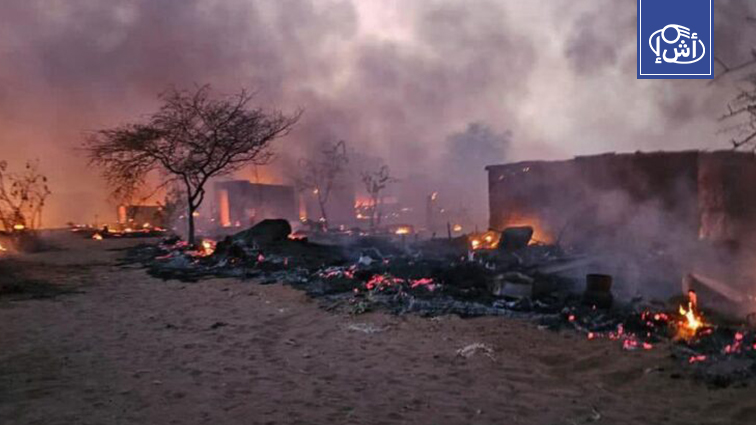El Fasher, the capital of the Darfur region, is witnessing a noticeable escalation in the intensity of clashes, which are the most ferocious since the beginning of the conflict about a month ago.
The ongoing fighting between the Rapid Support Forces and the army, in alliance with some factions, has prompted massive waves of displacement, making El Fasher, the largest city in the region, look like a ghost town.
The two warring parties used heavy weapons, drones, and violent bombing, resulting in widespread destruction, including hospitals, public facilities, and residential neighborhoods, while the warring parties exchanged accusations of escalating the conflict.
The World Health Organization warned of the consequences resulting from major hospitals stopping work and expressed its deep concern about the recent attack that targeted Al-Janoub Hospital, which is the only one capable of providing surgical services in the city, which limits access to vital services.
For its part, the United Nations High Commissioner for Human Rights has warned of the devastating impact of clashes on civilians, noting that residents and internally displaced persons are besieged and face the potential risk of famine.
According to the spokesman for the Sudan Liberation Army Movement, Muhammad Al-Nayer, the humanitarian conditions of families fleeing El Fasher are deteriorating day after day, as they reach areas under the movement’s control in harsh conditions, and dozens die daily due to malnutrition and lack of medicines.
Neutral armed movements in Sudan proposed a plan to form a joint force to protect civilians and facilitate the delivery of aid. These movements are: the Sudan Liberation Army headed by Minni Arko Minawi, the Sudanese Justice and Equality Movement headed by Jibril Ibrahim, the Sudan Liberation Forces Gathering headed by Al-Tahir Hajar, and the Sudan Liberation Army Movement. The Transitional Council led by Al-Hadi Idris, and the Sudanese Alliance headed by Khamis Abkar.
These forces were formed under the auspices of the governor of the Darfur region, Minni Arko Minawi, and the plan has not been fully implemented yet due to limited capabilities and logistical support.
The United Nations: Sudan witnesses one of the worst humanitarian disasters
